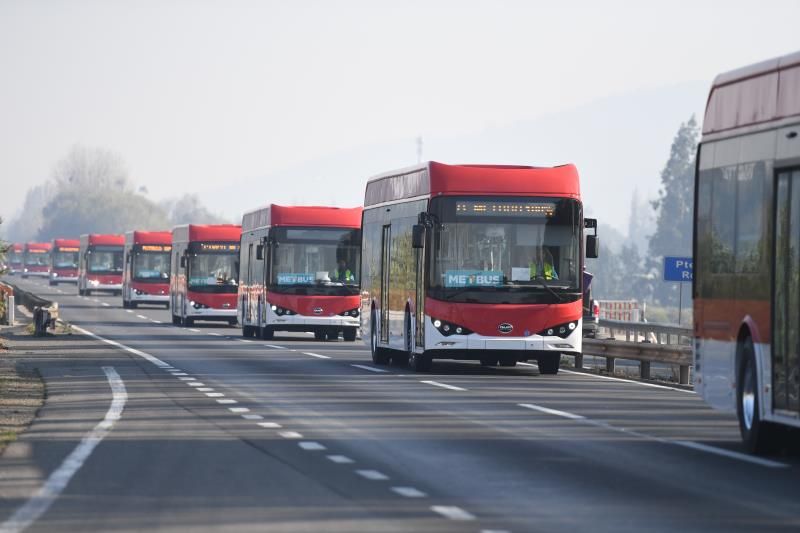Last year, Santiago de Chile began an ambitious project to transform its bus network with 100% electric models. An initiative that is surprised by its implementation speed will mean that hundreds of new models will have been incorporated to replace diesel pollutants in just one year.
This week the Chilean capital has confirmed the commissioning of 150 new units, which will bring the total number in circulation to 455 electric buses. A fleet formed by the models of the Chinese manufacturer BYD has managed to make an essential place for itself in the American market.
The country manager of BYD Chile, Tamara Berríos, assured that the new fleet of electric buses will allow “deliver more quality trips to citizens and decontaminating Santiago. The Alameda project is of great importance due to its visibility and the transformation of the structuring axis of the capital of Chile. We are convinced that it is necessary to continue promoting the transformation of public transport through electromobility, and BYD will continue to advance in this line”.
BYD highlighted that it is consolidating itself as a leader in the electric bus market in Chile with a 65% share and as a “leader in electromobility in Latin America” with a presence in Colombia, Argentina Brazil, Ecuador, and Uruguay.
The new Chilean transport system, which replaced Transantiago, started in 2019 with the arrival of the first 100 BYD buses to Chile. A figure that has been growing over the months and where it is projected that the fleet of electric buses in Santiago will approach 800 units by the end of 2020.
With this new BYD bus consignment, Santiago will become the city with the most electric buses in service in the world, only behind the large Chinese cities.
A fleet made up of models capable of transporting up to 38 people each, equipped with the latest BYD battery technology, which allows autonomy of more than 250 km on a single charge. It should be noted that inside these buses, passengers will have amenities such as air conditioning, USB connections to charge mobile devices, and Wi-Fi connection.
A determined commitment that involves not only reducing polluting emissions from public transport but also creating a system that combines metro, bus, and bicycle, to make journeys in the Chilean capital sustainable and increasingly economical in the operational aspect.

